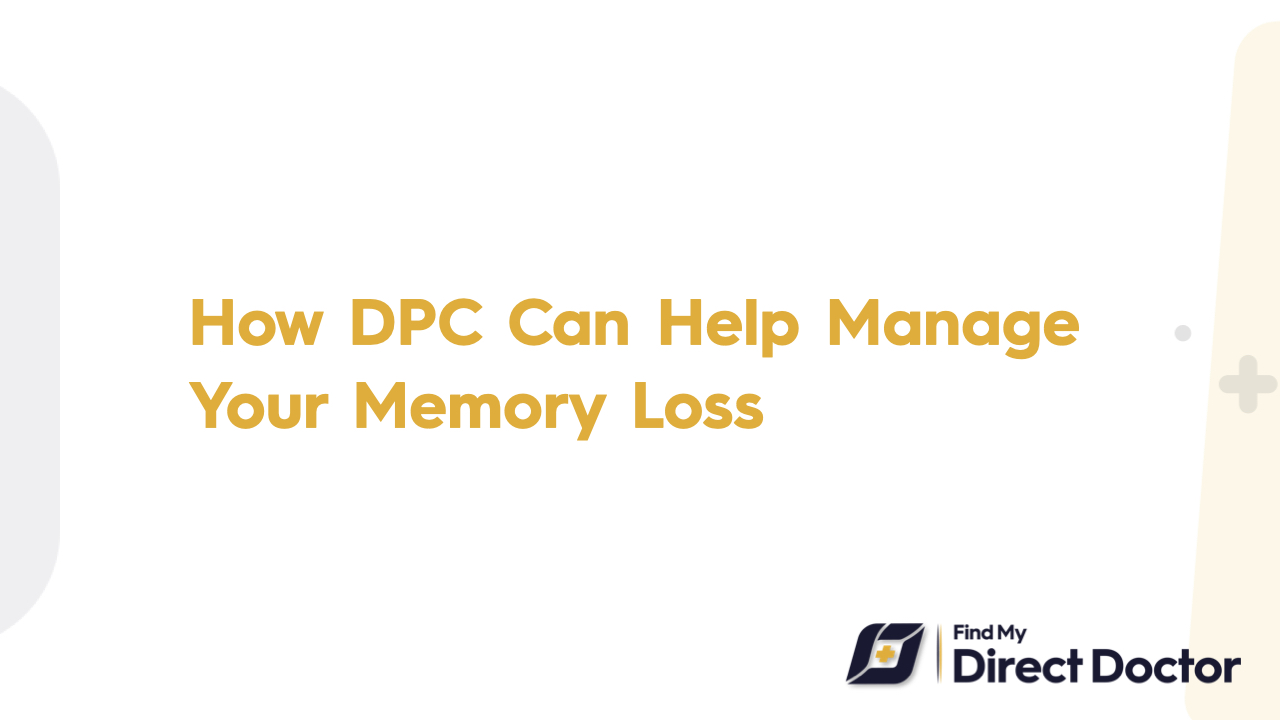



The inability to recall facts, occasions, or experiences that were previously stored in the brain is referred to as memory loss. It might come on gradually or all at once, and its intensity can change. In addition to being a common aspect of aging, memory loss can also be a sign of underlying medical disorders including dementia, Alzheimer's disease, or traumatic brain injury. It can affect one's capacity to carry out daily duties like cooking or money management, and it can involve trouble recalling recent events, appointments, or the names of familiar people.
Confusion, mood fluctuations, or trouble focusing are some of the symptoms that may accompany memory loss in addition to information loss. Sometimes people struggle to remember personal information or prior experiences, which can cause them to become frustrated or anxious. When combined with other cognitive problems, severe memory loss can make it difficult for a person to live independently and may indicate a more serious neurological disease. Finding the underlying cause of memory loss is crucial to choosing the best management and treatment strategies.

By giving patients individualized, continuous care that is tailored to their unique needs, Direct Primary Care (DPC) is the best option for managing memory loss. By spending more time with patients during appointments, DPC practitioners are better able to understand their general health and cognitive abilities. Early memory loss symptoms can be detected with this customized method, which can also address underlying causes including drug side effects, sleep disturbances, or mental health conditions like anxiety and sadness.
If necessary, a DPC provider can also assist in arranging for other diagnostic procedures, such as cognitive testing or referrals to neurologists or other experts. They can help patients navigate different therapy options and make sure that any lifestyle modifications that are required—like bettering sleep patterns, food, or cognitive exercises—are integrated into the patient's everyday routine. DPC guarantees that memory loss is adequately controlled over time and that patients receive the best interventions as their needs change because of its capacity to provide ongoing care and monitoring.
The focus on ongoing, individualized care is one of Direct Primary Care's advantages for patients with memory loss. DPC provides longer consultation times than typical healthcare models, allowing patients with memory loss to talk about their symptoms in greater depth and have more comprehensive evaluations. This guarantees that the treatment strategy is especially adapted to the patient's condition and way of life. Additionally, DPC promotes a more stable relationship between the patient and their healthcare practitioner, which can result in improved communication and trust—two things that are critical for successfully treating cognitive decline.
Additionally, DPC makes it possible to manage memory degradation in a more comprehensive way. A DPC provider can evaluate a patient's general state of physical, mental, and emotional well-being while accounting for any variables that might be affecting memory performance. Timely treatments, such as modifying medication, reducing stress levels, or suggesting therapies to enhance cognitive health, are made possible by this holistic care strategy. The timeliness and efficacy of treatment for people with memory loss can be greatly impacted by having a primary care physician who actively participates in all facets of their health.
At Direct Primary Care, personalized memory loss care is centered on each patient's unique needs and situation. In close collaboration with the patient, a DPC physician develops a personalized strategy that targets the unique signs and causes of memory loss. This could involve suggestions for cognitive training, neuropsychological testing, or dietary changes meant to enhance brain function. The provider can also assist with the management of long-term illnesses including diabetes, high blood pressure, or thyroid issues that may be causing memory loss.
DPC guarantees that patients have constant access to their provider through routine check-ins, whether in person or via telemedicine, enabling real-time treatment plan modifications as necessary. This continuous monitoring can stop future decline and enhance quality of life for patients whose memory function fluctuates. DPC fosters a supportive environment where memory loss is actively treated with a thorough, individualized approach, in addition to being managed, because it places an emphasis on long-term relationships between patients and caregivers.
Previous Post